From circuit breakers to quantum photonics: the impact of women in Purdue Electrical and Computer Engineering
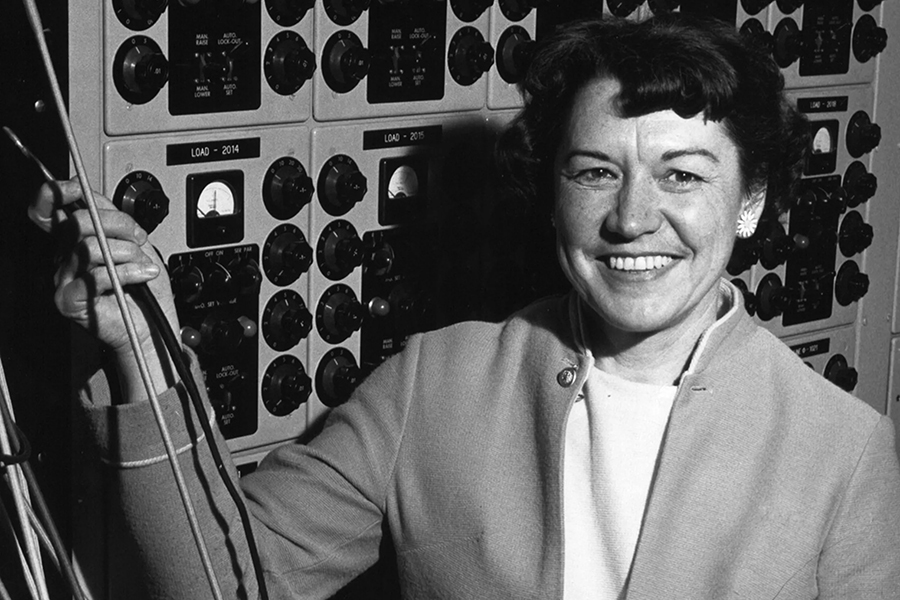
Josephine Webb was one of only a handful of female engineering students when she attended Purdue in the late 1930s. After she graduated with a bachelor’s degree in electrical engineering in 1940 she went on to obtain two patents for oil circuit breaker contact design while working as a Design Engineer for Westinghouse Electric Corporation. As Director of Development for the Facsimile Development Laboratory at the Alden Products Company, Webb designed an eighteen-inch, full newspaper size fax machine with superior resolution for the mid-1940s. She eventually founded Webb Consulting Company with her husband, Herbert J. Webb, who also graduated with a bachelor's degree in electrical engineering from Purdue in 1940. The company worked for clients such as Boeing and the U.S. Bureau of Mines, specializing in electrical-electronic measurement instrumentation, communications applications, and photographic test devices.
Webb was active in many professional organizations, including the Institute of Electrical and Electronics Engineers (IEEE) and the National Society of Professional Engineers (NSPE). Webb is considered a pioneer by the Society of Women Engineers (SWE) and is a Fellow of that organization. She passed away in 2017 at the age of 99.
Things have changed since Webb graduated in 1940 as the only female in her class. In May 2022, 353 female students earned bachelor’s degrees, 53 received a master’s degree, and 25 finished their PhD.
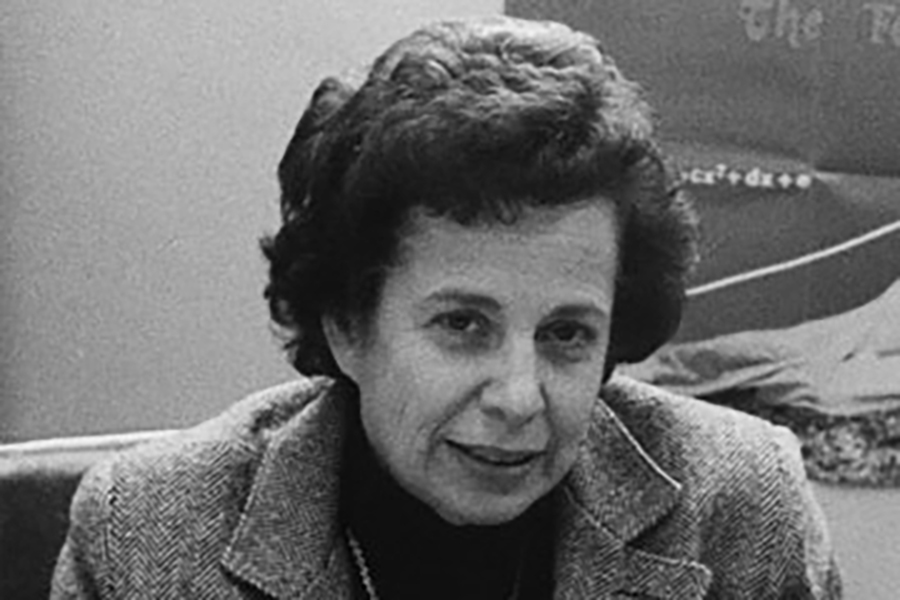
While Webb was among the first female students in the School, Violet Haas was the first female professor. She joined the faculty in the Purdue Department of Electrical Engineering in 1962, and became a full professor in 1978. Her areas of expertise included optimal control, nonlinear control, and optimal estimation.
Haas was a strong advocate for women in STEM fields. She served as the coordinator for the Association for Women in Mathematics’ speakers bureau, was a member of IEEE’s committee on professional opportunities for women, and the American Society for Engineering Education’s (ASEE) constituent committee on women in engineering. Haas passed away in January of 1986. In 1990, the Council on the Status of Women at Purdue established the Violet B. Haas award that recognizes people who promote the status of women at the university.
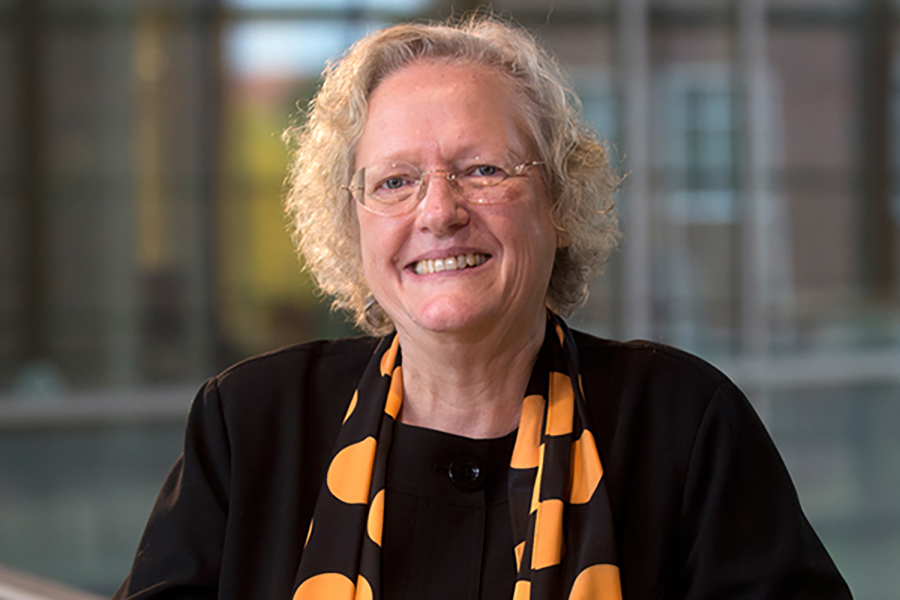
Today, there are 18 female faculty in Purdue ECE. They are experts in quantum technologies, microelectronics and nanotechnology, electromagnetics and photonics, computer vision and image processing, data and information analysis, artificial intelligence, machine learning, VLSI circuit design, wireless communication and sensors, and much more. Leah Jamieson, Ransburg Distinguished Professor of Electrical and Computer Engineering and the John A. Edwardson Dean Emerita of Engineering, is the longest-serving professor, having joined the ECE faculty in 1976. In fact, she is the most senior female faculty member in Purdue’s College of Engineering and her influence has been felt across ECE, the College, and the University. In 1995, Jamieson co-founded EPICS, a service-learning design program in which teams of students partner with local and global community organizations to address human, community, and environmental needs. She served as Interim Head of Purdue ECE for several months in 2002, and was named Dean of Purdue’s College of Engineering in 2006, a position she held until 2017 when she returned to teaching and research full-time.
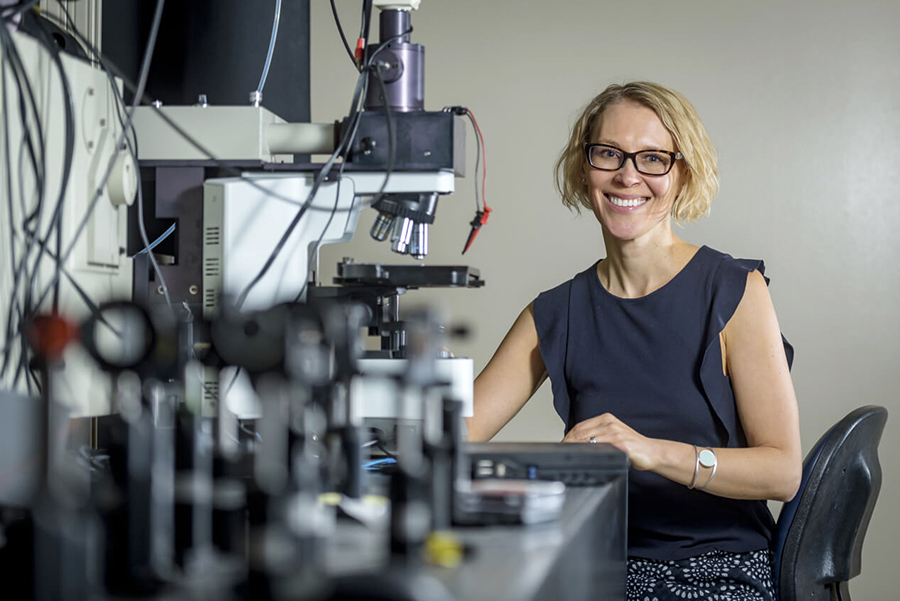
Alexandra Boltasseva joined the Purdue ECE faculty in 2008. She is currently the Ron and Dotty Garvin Tonjes Professor of ECE. Boltasseva says she is lucky to have had supportive and enthusiastic teachers and colleagues, both male and female, to help her along the way. She says she is grateful to all the great female role models that she met early in her career and says mentoring female students is very important to her.
“I always try to reach out and talk to female students not only at Purdue but anywhere I go,” says Boltasseva. “I still remember how important it was for me to see a successful female professor.”
She has simple advice for young girls considering a career in STEM – if you like it, go for it and BELIEVE in yourself.
“And also, I wish I had been told that one should not be afraid to fail,” says Boltasseva. “Being perfectionist can be the worst enemy of creativity and real success. I wish someone had told me in the very beginning to aim for the biggest goals - aim for the stars - instead of staying on a safer side.”
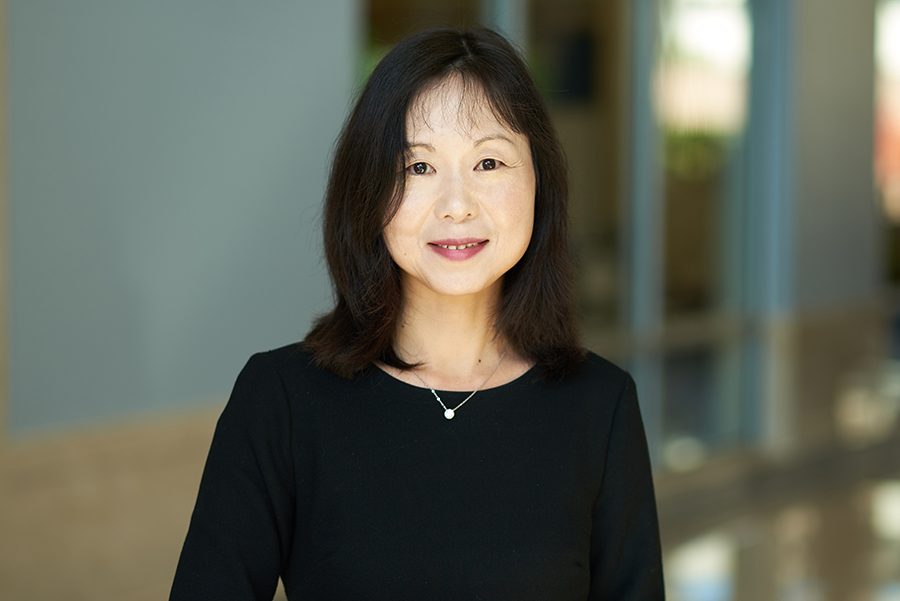
Dan Jiao, Synopsys Professor of ECE and Associate Head for Resource Planning and Management, agrees with this advice and says aspiring female engineers should constantly challenge themselves to go outside their comfort zones; every challenge is an opportunity to learn and grow.
“Sometimes people do not have confidence in you,” she says. “You have to prove yourself many times to gain the same respect or confidence. This is the challenge women engineers still face, and recognizing the challenges helps people work together to build a more inclusive and equitable community.”
Jiao says when she was a student, she was the only female in her lab, but now there are many more. This is certainly true in Purdue ECE, which has seen the percentage of female students increase from 12.8% UG and 15% Grad in Fall of 2013 to 16% UG and 19% Grad in Fall of 2022.
Dimitrios Peroulis, Michael and Katherine Birck Head of Electrical and Computer Engineering and Reilly Professor of Electrical and Computer Engineering, says the School is committed to continuing to grow the number of female faculty and students.
“Over the past four years we created a new ECE leadership team achieving 40% female representation for the first time,” says Peroulis. “Moreover, we increased the number of female ECE chaired professors by 200%. We need to do more and are determined to do so.”
In addition to mentoring from faculty and guidance from academic advisors, Purdue supports female electrical and computer engineering students through various programs and student organizations. These include:
- The Purdue Society of Women Engineers (SWE), founded in 1954, is the nation’s oldest continuously chartered SWE student section. It provides technical, professional, outreach, and social opportunities to empower women to achieve full potential in careers as engineers and leaders.
- Founded in 1969, the Women in Engineering Program was the first of its kind in the nation. From mentoring to career development, WiE encourages current and future women engineering students by providing interesting and engaging programming.
- Purdue Women in Electrical and Computer Engineering (WECE) is a subcommittee of the Electrical and Computer Engineering Student Society (ECESS). It was founded in 2016 and is dedicated to connecting women within the field of technology.
- The Graduate Women in Engineering Network (GWEN) provides a supportive environment to share information and strategies to enable women engineering graduate students to achieve success personally, academically, and professionally.
Despite the challenges female engineers may still face, Boltasseva says the hard work is worth it.
“The best part about being an engineer is that you work at the interface of fundamental science – where all breakthrough discoveries happen – and ongoing technology revolutions that drive you to transform your ideas into practical applications for a better tomorrow.”
On this International Women’s Day, we celebrate the incredible achievements of women in Purdue ECE. As women in a traditionally male-dominated field, they have broken down barriers and paved the way for future generations of female engineers. For more information, click here.
